Fourteen years in the making and a incessant reminder of the horrors of the past, Flight 93 National Memorial, which opened on Thursday, is an interactive centre that employs photographs, video recordings, artefacts and graphic displays to tell the story of the doomed United Airlines Flight 93, the only jetliner among the four commandeered by terrorists that failed to reach its intended target on September 11, 2001.
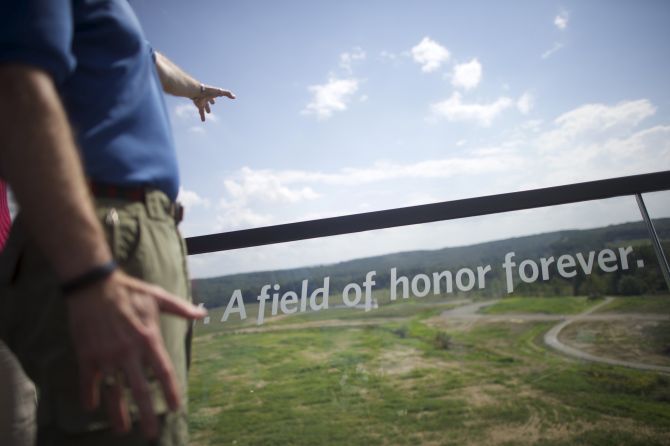
Gordon Felt, whose brother died in Flight 93, leads a tour through the newly opened Flight 93 Memorial in Shanksville, Pennsylvania. On September 11, 2001, one of the four planes overtaken by al Qaeda terrorists crashed into Pennsylvania, killing all 40 passengers aboard. Photograph: Mark Makela/ Reuters
Two airplanes crashed into the World Trade Center towers in New York and one rammed into the Pentagon outside Washington. Over 3,000 people lost their lives in the attacks.
What's past is prologue
United Airlines Flight 93, an early-morning nonstop flight from New Jersey to California, departed at 8.42 am, mere minutes before the first plane struck the World Trade Center.
The plane’s takeoff had been delayed for over 45 minutes due to air traffic at the Newark International Airport in New Jersey.
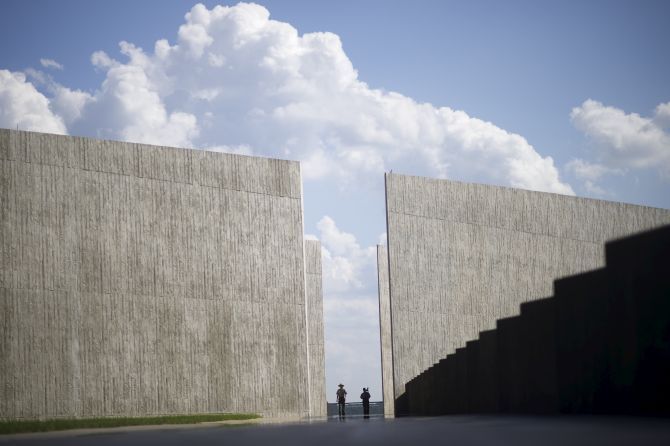
The plane carried seven crew members and 33 passengers, less than half its maximum capacity. The flight had been successfully boarded by the four hijackers who had smuggled knives and box-cutters onto the plane.
The late departure had disrupted the radical’s timeline and unlike the hijackers on the other three planes, they did not attempt to gain control of the aircraft until nearly 40 minutes into the flight.
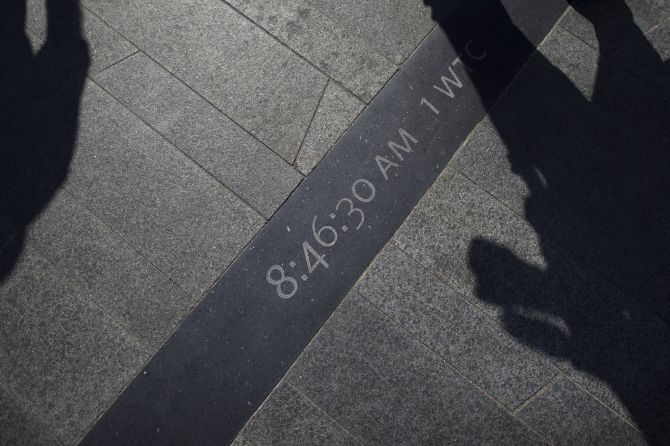
The terrorists successfully infiltrated the plane’s cockpit, and the ATC heard what was believed to be mayday calls amid sounds of a struggle.
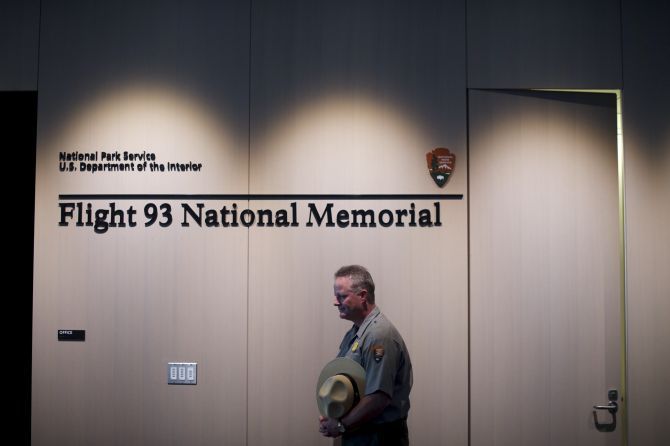
One of the hijackers, later identified as Ziad Jarrah, was heard over the flight data recorder, directing the passengers to sit down and stating that there was a bomb aboard the plane.
The flight’s black box also revealed that Jarrah had readjusted the autopilot and had turned the plane around to return towards the east, possibly to their intended target.
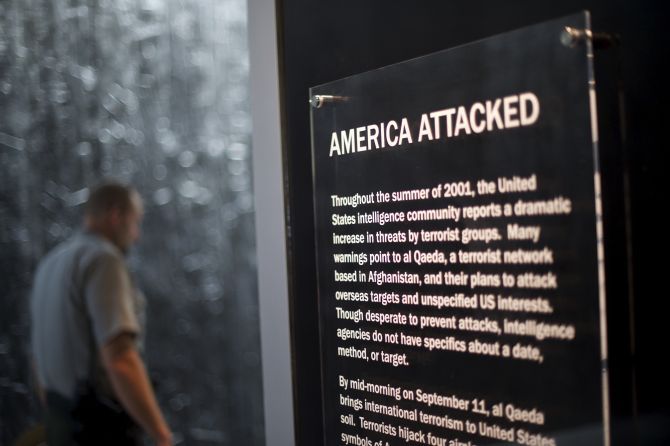
At the back of the plane, the passengers and the crew of the plane made a series of calls on their mobile phone and via in-flight comms, informing their family members and officials on the ground that the flight had been commandeered by radicals.
When they learned the fate of the three other hijacked flights, the passengers realised that their plane was involved in a massive terrorist plot and would likely be used to carry out further attacks on US soil.
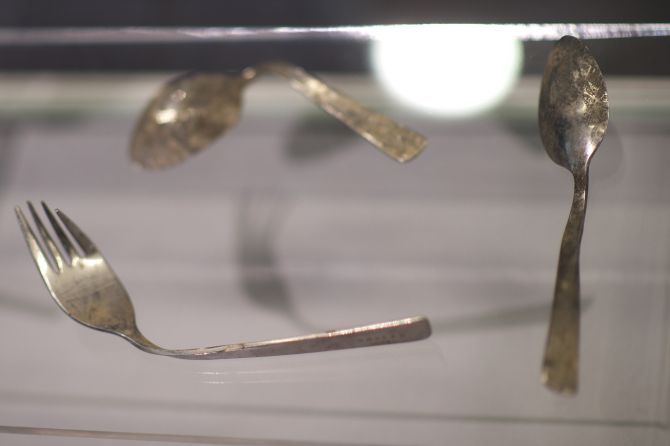
After a short deliberation, the passengers and crew members decided to fight back against the terrorists, informing people on the ground of their plans.
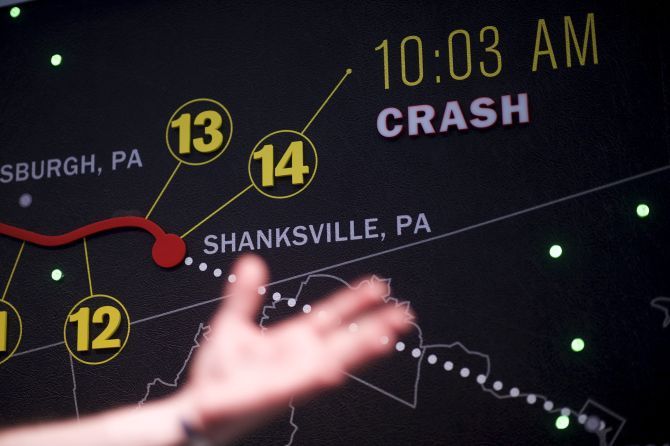
As the passengers and crew aboard United 93 began their counterattack, the terrorist at the helm of the plane began to steer the airplane, shifting it upward and downward to throw the them off balance.
Worried that the passengers would soon break through to the cockpit, the hijackers made the decision to crash the plane before reaching their final destination.
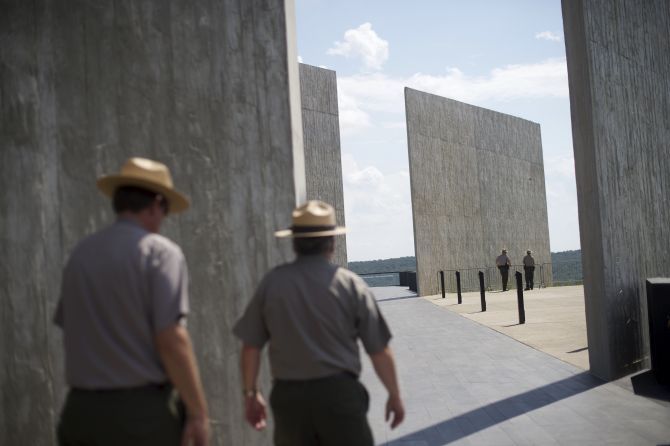
The plane was turned hard to the right. The airplane rolled onto its rear and ploughed into a field in Pennsylvania, rushing at a staggering 580 miles per hour.
United 93’s intended target is not known, but is believed that the terrorists could have been aiming for the White House, the US Capitol, the Camp David presidential retreat in Maryland or one of the several nuclear power plants along the Eastern seaboard.
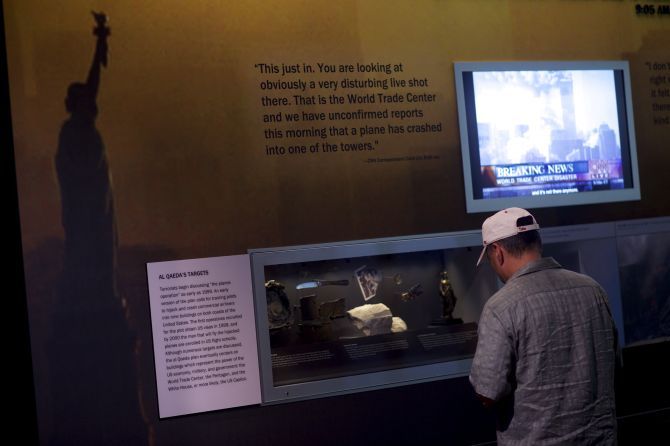
The blowup from the plane, which was carrying 7,000 gallons of fuel, razed hundreds of acres of earth and set the surrounding trees ablaze for hours.
The crash site near Shansksville was strewed with the wreckage from the brayed plane, with a debris field spanning nearly eight miles from the initial point of impact.
Despite the large scale destruction, investigators managed to recover both the plane’s flight data recorder, commonly known as the black box, and the cockpit voice recorder which was found immersed more than 25 feet below ground.
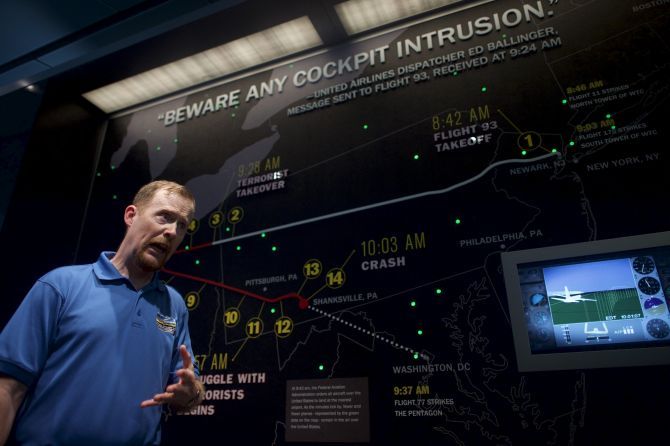
Though few human remains were recovered at the site, medical examiners were eventually able to positively identify the 33 passengers, seven crewmembers and four hijackers aboard the flight.
The here and now
The $26 million (around Rs 172 crore) visitor complex honouring the victims of Flight 93 was dedicated and opened to the public on Thursday.
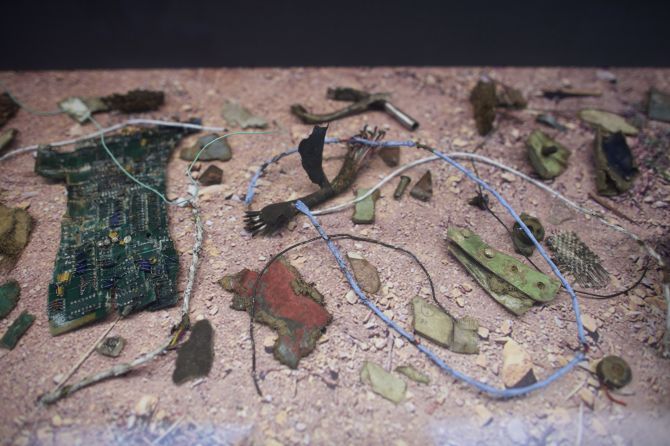
The centre’s exhibits are laid out chronologically, with visitors learning how the 33 passengers and seven crew members voted to fight back and regain control of the plane.
Attendees will be able to see displays and artefacts memorialising all of the events of September 11, 2001, not only what happened on United Flight 93.
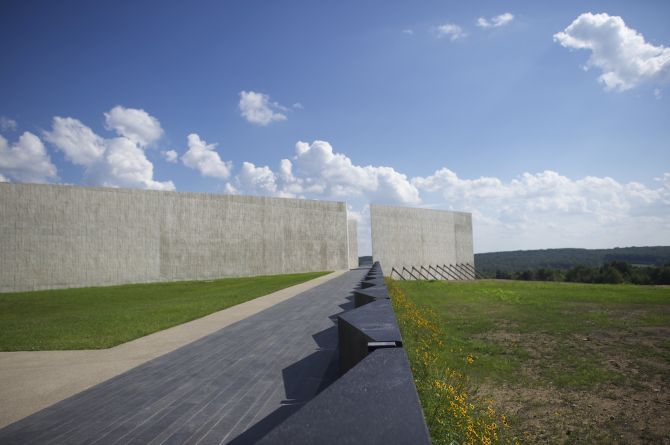
The museum focuses on that plane's passengers, their stories and includes portraits of all the victims and recordings of the calls made to family members.
The United 93 National Memorial was designed by Los Angeles architect Paul Murdoch and includes a black granite walkway intended to evoke the plane's flight path and an overlook offering visitors a view of the crash site.










